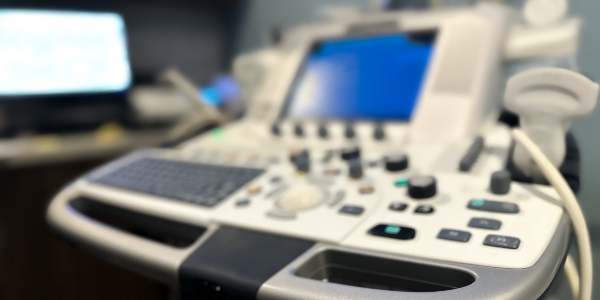
The SoR has been featured in numerous media publications and on radio broadcasts this week after releasing a statement on the dangers posed by unregistered sonographers conducting ultrasound scans on the high street.
Ultrasound scans conducted by non-specialists at baby-scan clinics have led to healthy babies being seriously misdiagnosed, with mothers having been told their baby is dead or has severe malformations, according to the professional body for radiography.
Released yesterday (3 November), the statement also calls for ‘sonographer’ to become a protected title to prevent misdiagnosis in pregnancy. Protected titles - like Diagnostic Radiographer, Dietician, Art Therapist and Occupational Therapist - require holders to be qualified and registered with the appropriate regulatory body.
The SoR says that the lack of protection over the sonographer title has seen an increase in high street clinics that offer pregnancy scans, where there is no guarantee that the scan will be performed by a trained sonographer.
Media coverage
The SoR’s statement has been picked up by numerous mainstream publications, including the BBC, the Guardian, Metro, the Standard and the Telegraph.
In addition, Charlotte Beardmore, SoR's Executive Director of Professional Policy, appeared on ITV's main news broadcast to discuss the issue; you can watch the segment here: ITV
SoR president emphasises risk
SoR president Katie Thompson, an NHS sonographer, appeared on LBC News on Monday to discuss the organisation’s warning against unqualified sonographers. She said that baby scans carried out by unqualified individuals can lead to misdiagnosis, including diagnosing conditions that aren’t there.
“If someone hasn’t got the appropriate training or the right level of experience then they can be misdiagnosing conditions that should be picked up with ultrasound, or actually diagnosing problems from the scan that are actually not there,” she explained.
“I had a lady referred to me because they told her she’d had a miscarriage, and they’d actually measured a bleed next to the pregnancy sac and the baby was fine. It was very early, it was six weeks, but the baby was fine.”
Lack of regulation in high-street clinics
Ms Thompson added that some clinics may be more reputable than others, but ultimately discouraged their use as staff and machinery may not be up to standard.
“The first scan that you normally get if all is well in your pregnancy is usually at 12 weeks and for some people, this is a long time to wait to check if their pregnancy is okay,” she continued. “And they will use these clinics, and if they’ve got a clinic that has got a good reputation, then there’s no reason why they can’t go for an early scan if that puts their mind at rest and just checks everything is okay.”
“The trouble is that there is a large amount of clinics that do not have appropriately trained people running them, and they have no assurance that what they’re being told is accurate or correct, or that the machinery that is being used is in good safe working order.”
The SoR offers a number of resources for members who are sonographers. Last month, it published a new framework outlining guidance and standards for sonographer roles that provide healthcare in early pregnancy. More information about the document - which was created in conjunction with the Association of Early Pregnancy Units - can be found here.
